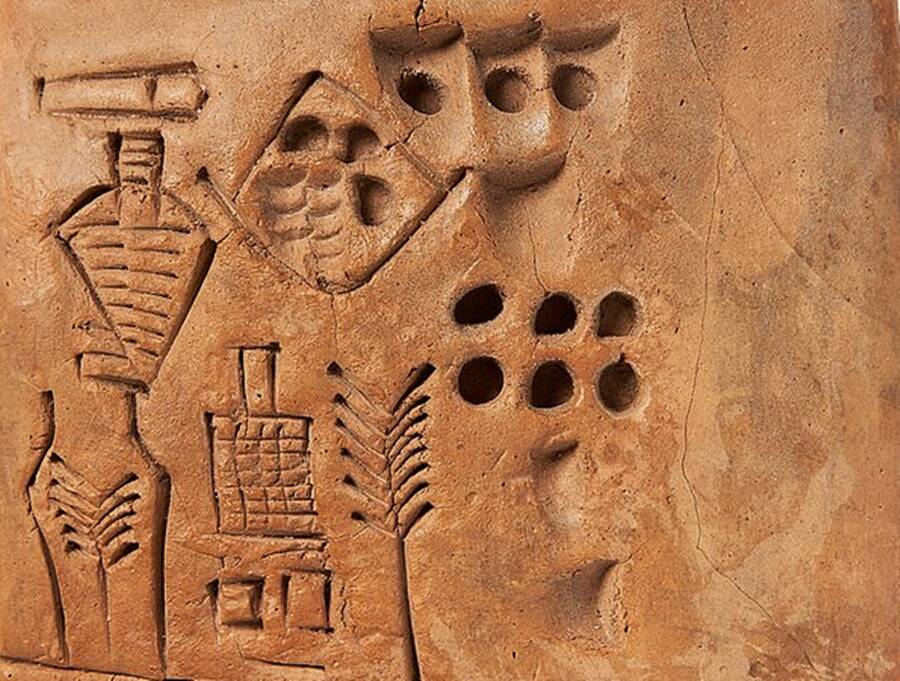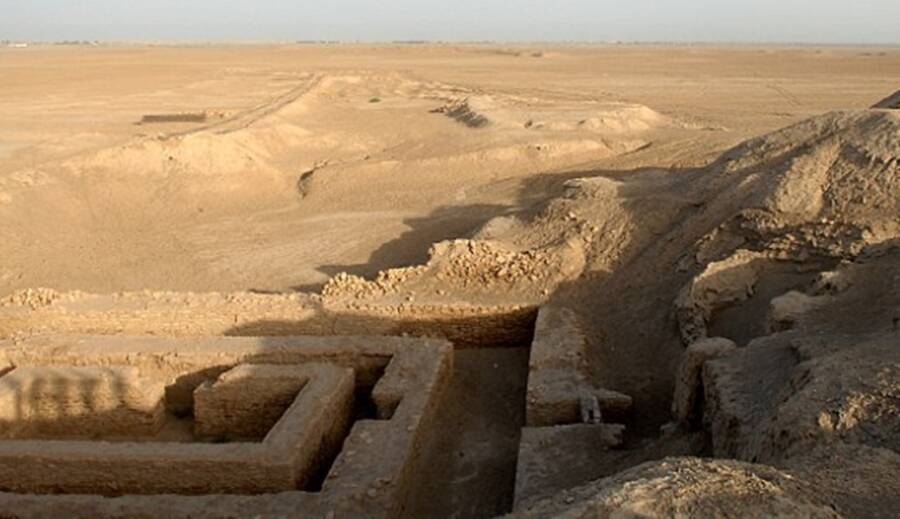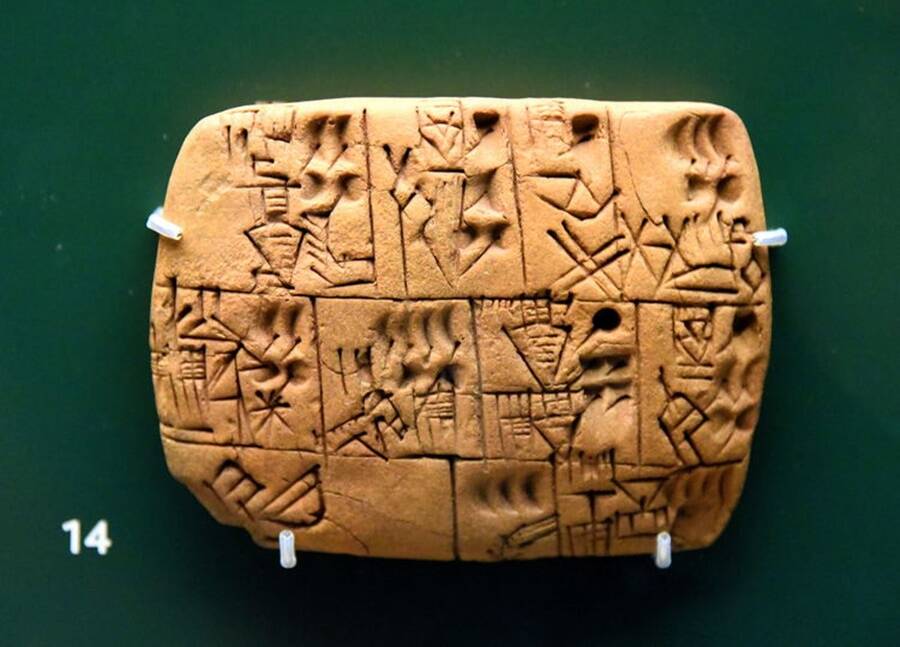The tablet was made in about 3100 B.C. in the ancient Mesopotamian city of Uruk in modern-day Iraq.

Bloomsbury Auctions/BNPSThis 5,000-year-old tablet depicting beer-making and a signed sales transaction was sold for $230,000.
According to archaeology news site Ancient Origins, the Sumerian tablet was first uncovered at the site of the city of Uruk located in ancient Mesopotamia, which is in present-day Iraq. It was part of the private Schøyen Collection, a collection of tablets and manuscripts dating back to ancient written history.
The tablet itself is a one-of-a-kind artifact, not only because of its detailed inscription about an ancient beer sale but also because it holds what many believe to be the world’s first signature.
Symbols on the top left corner of the tablet — the supposed signature — translate as ‘KU’ and ‘SIM’ which experts have interpreted as spelling the name ‘Kushim.’ The name was possibly that of a government scribe who created the recording on the clay tablet for administrative purposes.
However, others suspect ‘Kushim’ could be the name of a government agency or title rather than a specific individual. The inscribed name has been found in 17 other tablets. On some of them, the name is addressed as ‘Sanga’ or temple administrator.

MODSite of the ancient city of Uruk where the Sumerian tablet was found.
Israeli author Y. N. Harari, who wrote the historical book Sapiens: A Brief History of Humankind, noted that the inscription on the ancient tablet reads “29,086 measures barley 37 months Kushim.”
The etching has been interpreted as some sort of receipt for the purchase of barley which was commonly used to brew Sumerian beer. Other symbols on the tablet depict the industrial process of beer brewing using barley or corn up until it becomes a jar of beer.
The process appears to take place in a temple in ancient Mesopotamia around 3,100 B.C., dating the tablet back to 5,000 years ago.
As part of a private collection, the historical artifact which measures three-by-three inches was sold in an auction under Bloomsbury Auctions, an auction house based in London, U.K. A wealthy American collector purchased the ancient Sumerian tablet for $230,000 in August 2020.
“One only gets a few chances to work with any item of such importance, marking a milestone in perhaps the most important human invention – writing,” said Timothy Bolton, a specialist at Bloomsbury Auctions.
He continued, “Our names are important to us, they are a fundamental part of our identity and probably the first thing any child learns about itself.”
The artifact was projected to fetch a sum of £90,000, or a little below $200,000. But bidders at the auction showed high enthusiasm for the tablet which possibly bears the earliest known personal name recorded in writing. In the end, the Sumerian tablet went to a private American collector for $230,000.
Other recording tablets have been found in Sumer, the earliest known civilization in the region of ancient Mesopotamia, depicting the population’s beer culture. One Sumerian tablet shows people drinking beer through a long straw.

British MuseumA different tablet from ancient Mesopotamia depicting possible rations for beer.
Beer was integral to the Sumerian way of life, possessing significance in religion and society, and even demonstrating currency value as experts believe the beverage was also used to pay workers. No doubt, these tablets are an incredibly valuable source of history.
But Sumerian tablets have become an increasingly hot commodity on the antiquities market as shown from the high bidding for this tablet. Many of these artifacts were likely illegally excavated and looted from Iraq amid the instability of the region’s wars.
As Craig Barker, a classical archaeologist and museum educator based in Sydney, Australia, wrote, “The looting is regarded as one of the worst acts of cultural vandalism in modern times, but much more of Iraq’s rich cultural history has been destroyed, damaged or stolen in the years since.”
In 2018, roughly 450 stolen Sumerian tablets were repatriated from the U.S. to Iraq. Still, experts agree it was small restitution compared to the breadth of artifact theft that has long pervaded the field of archaeology worldwide.
Next, read about the stunning ancient palace revealed by drought in a dried-up reservoir in Iraq and learn more about how the U.S. received millions of dollars’ worth of stolen artifacts from Middle East conflict zones in 2016.




